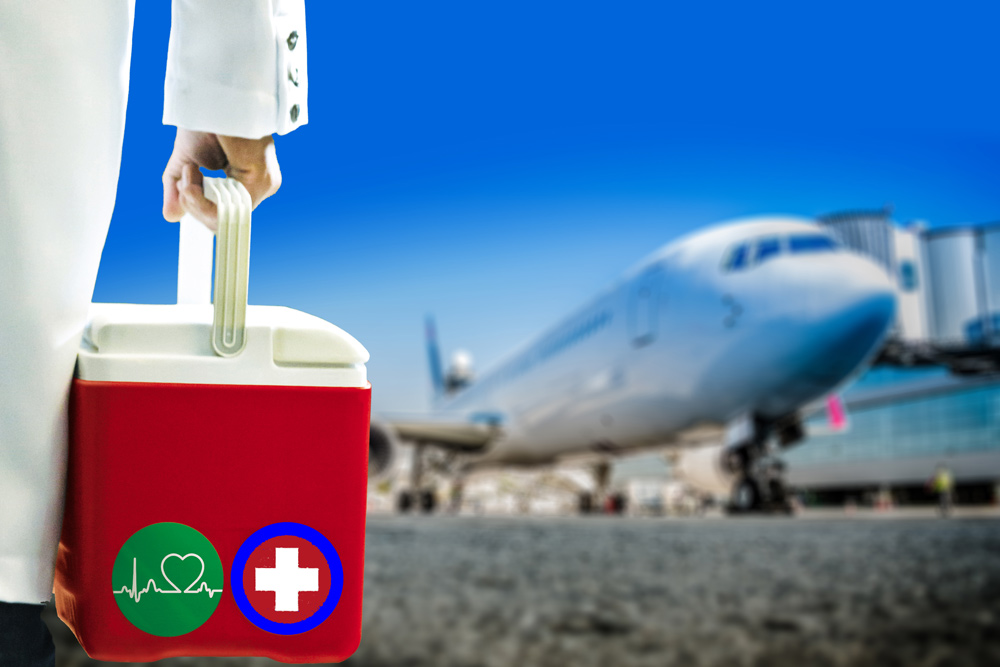Study Examines How Vital New Air Routes Are for Organ Transplants
By: Brittany Magelssen | Aug. 20, 2021

Each year nearly 5,000 patients die while waiting for kidney transplants, and yet an estimated 3,500 procured kidneys are discarded.
In a recent study published online July 9 in the INFORMS journal Management Science, a researcher from The University of Texas at Dallas investigated how introducing new airline routes impacts the sharing of cadaveric kidneys.
“This mismatch between supply and demand of donor organs and the time-sensitive nature of kidney transplantation made us wonder whether better airline logistics infrastructure could help match that supply and demand,” said Dr. Guihua Wang, assistant professor of operations management in the Naveen Jindal School of Management and the study’s lead author.
Wang and co-authors Dr. Ronghuo Zheng of UT Austin and Dr. Tinglong Dai of Johns Hopkins University created a unique sample that tracked both the evolution of airline routes connecting all U.S. airports, and kidney transplants between donors and recipients connected by these airports.
To do this, the researchers merged monthly air-carrier traffic information from the U.S. Bureau of Transportation Statistics and individual-level data for all U.S. kidney transplant candidates, donors and recipients from the United Network for Organ Sharing.
The study estimates that each new airline route led to a 7.3% increase in the number of kidneys sent to transplant centers across the U.S. The findings also suggest that introducing a new airline route reduces the discard rate of kidneys by facilitating kidney sharing.
“An increase in the organ transplant rate, coupled with a decrease in the organ discard rate, means a better use of organs that would otherwise be discarded,” Wang said. “These findings suggest the introduction of new airline routes facilitates the sharing of organs across different regions and, therefore, helps match supply and demand.”
One aspect of organ allocation policy is that it prioritizes proximity from the donor, due to the time-sensitive nature of transplantation. Most kidneys from deceased individuals are allocated to local recipients, and direct flights are ideal for long-distance sharing.
The U.S. organ transplant system has 11 geographic regions and operates as a collection of 58 donation service areas. Each area is managed by an organ procurement organization that evaluates, procures and places organs.

“An important takeaway from this study is that better transportation infrastructure facilitates broader organ sharing. Policymakers must consider airline connectivity between different regions, not just their distances, when designing new organ-sharing policies.”
Dr. Guihua Wang, assistant professor of operations management in the Naveen Jindal School of Management
Wang said that although numerous policy initiatives are aimed at broadening organ pooling, they rarely account for the issue of efficient airline transportation. Without direct flights, transplant centers may be reluctant to accept kidney offers from farther locations.
Because regions differ in their organ supply and demand, the waiting time for transplants depends on location. For example, the average wait time for a kidney transplant in San Antonio, Texas, is approximately five years. In Memphis, Tennessee, it is about six months.
The researchers also found the increase in the number of kidneys sent between pairs of airports did not decrease the number of kidneys sent elsewhere. The findings also suggest that the overall quality of the kidneys did not decline with the increased number of routes, based on three- and five-year post-transplantation survival rates.
“An important takeaway from this study is that better transportation infrastructure facilitates broader organ sharing,” Wang said. “Policymakers must consider airline connectivity between different regions, not just their distances, when designing new organ-sharing policies.”
In addition to highlighting logistical issues and contributing to a better understanding of the U.S. organ transplantation system, the study offers potential solutions for improving access to the system. For example, the researchers suggest the establishment of a national transportation system that initiates and tracks organ shipments through commercial airlines.
Wang said the study also has implications for future public-health crises. For example, the federal Coronavirus Aid, Relief and Economic Security (CARES) Act, a $2.2 trillion economic package passed in response to the COVID-19 pandemic, mandates that each airline company receiving federal funding meets minimum required route service levels.
“In a future pandemic, our paper provides an important empirical basis for policymakers to justify the mandates of maintaining minimum required route service levels despite low passenger demand,” Wang said. “Also, policymakers can consider potential health impacts as they decide minimum service levels for different types of flight routes.”
Media Contact: Brittany Magelssen, UT Dallas, 972-883-4357, brittany.hoover@utdallas.edu, or the Office of Media Relations, UT Dallas, (972) 883-2155, newscenter@utdallas.edu.





